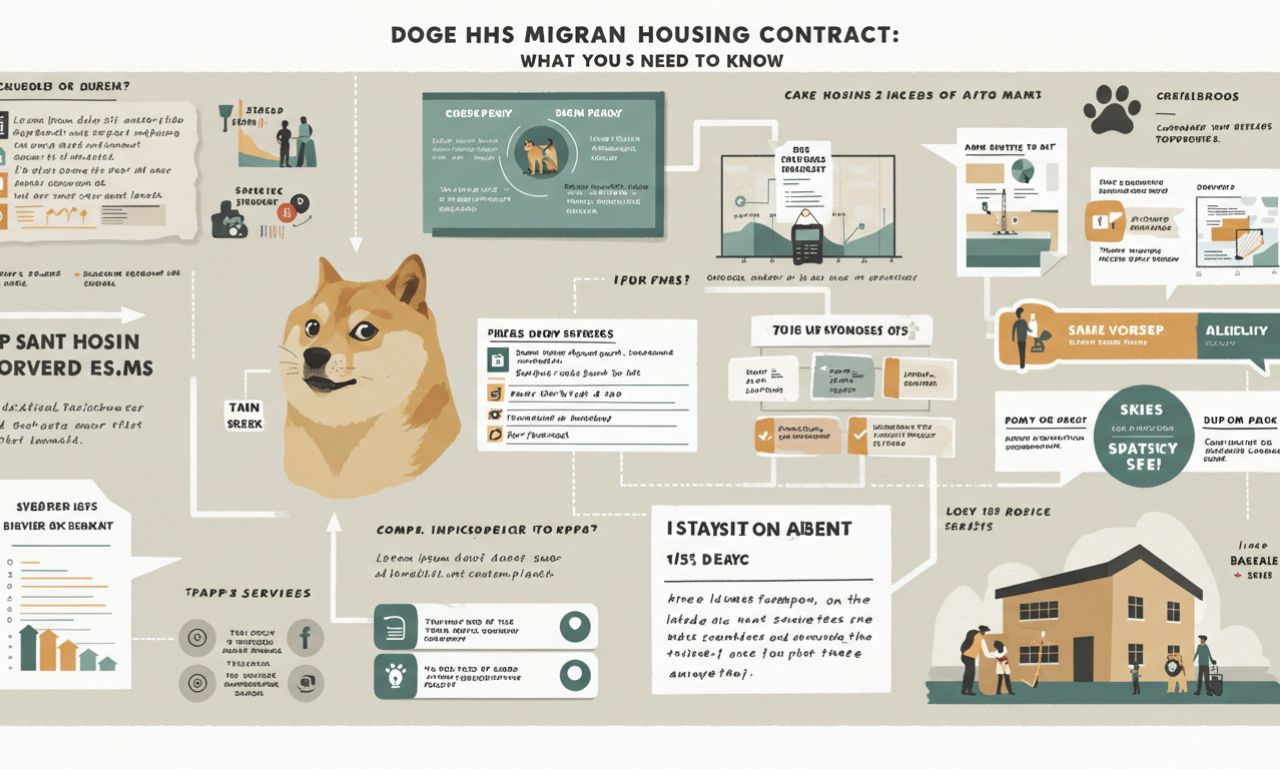In recent years, the U.S. government has faced increasing pressure to address migrant housing with transparency, efficiency, and compassion. A new player, Doge, has entered the scene with a significant contract awarded by the Department of Health and Human Services (HHS). The Doge HHS migrant housing contract has stirred both interest and concern among government watchdogs, humanitarian advocates, and the general public. This article explores every critical aspect of this evolving story.
Understanding the Doge HHS Migrant Housing Contract
The Doge HHS migrant housing contract refers to a federal agreement between the U.S. Department of Health and Human Services and a private contractor known as Doge Enterprises. The contract is focused on providing emergency housing, support services, and infrastructure for unaccompanied migrant children and families entering the United States.
HHS, under its Office of Refugee Resettlement (ORR), is responsible for the care and custody of these migrants. With the number of arrivals fluctuating seasonally and politically, the agency frequently turns to private companies to scale housing and services quickly.
Who Is Doge Enterprises?
Doge Enterprises is a lesser-known government contractor that specializes in logistics, temporary housing, and disaster relief infrastructure. Prior to securing the HHS migrant housing contract, Doge had minimal public exposure but was involved in several small-scale federal projects.
Critics have raised questions about Doge’s qualifications and operational readiness. However, supporters argue that the company’s low overhead and fast-response model make it an ideal candidate for managing temporary housing during surges in migrant arrivals.
The Scope of the Contract
The Doge HHS migrant housing contract spans several states, including Texas, Arizona, and California—regions often overwhelmed by migrant inflows. Key deliverables under this contract include:
-
Establishment of modular housing units
-
Provision of medical, food, and psychological care
-
Language interpretation and educational services
-
On-site security and maintenance
-
Coordination with NGOs and local municipalities
The total value of the contract is reportedly in the hundreds of millions of dollars, though the exact figure remains partially redacted in public disclosures.
Public Reactions and Controversy
1. Lack of Transparency
One of the primary concerns surrounding the Doge HHS migrant housing contract is the lack of transparency. Advocacy groups such as the American Immigration Council have called for more public disclosure about the contract’s bidding process, compliance metrics, and long-term oversight.
2. Operational Readiness
Several critics, including former DHS officials, question whether Doge Enterprises has the infrastructure to deliver on such a large-scale project. Reports of delayed setup at certain housing locations have fueled speculation that the company may be underprepared.
3. Ethical Considerations
There’s also debate about the ethical implications of privatizing migrant care. While private contractors can provide scalable solutions, there is concern that profit motives may compromise quality of care, especially for vulnerable populations such as children.
Government Justification for the Contract
According to HHS spokespeople, the decision to award the contract to Doge Enterprises was based on urgent need and the company’s promise of rapid deployment. The agency stated that the migrant housing crisis could not afford bureaucratic delays, and Doge’s plan offered immediate action on critical housing and care components.
Officials also noted that Doge will be subject to regular audits and compliance reviews, ensuring that standards are maintained.
Comparisons with Past Contracts
This is not the first time a controversial contractor has been involved in migrant housing. In the past, companies like Caliburn and VisionQuest were scrutinized for substandard conditions and inflated billing.
The Doge HHS migrant housing contract is being closely watched to ensure history does not repeat itself. Observers are calling for congressional oversight and third-party evaluation to keep operations in check.
Potential Impact on Migrant Housing Policy
If successful, the Doge HHS migrant housing contract could serve as a model for future public-private partnerships in humanitarian care. A streamlined, cost-effective approach to migrant housing would be a win for both the federal government and taxpayers.
However, failure to meet contractual obligations or provide humane conditions could result in backlash, lawsuits, and long-term policy revisions aimed at limiting private sector involvement in sensitive social services.
Conclusion
The Doge HHS migrant housing contract represents a significant and controversial step in how the U.S. addresses temporary housing for migrants. While it offers a potentially effective solution to overcrowded facilities and surging migrant numbers, it also opens the door to numerous ethical, logistical, and political concerns.
As this contract plays out, both supporters and critics will be watching closely. For the sake of those most affected—migrant children and families—the hope is that Doge Enterprises lives up to its promise, and that HHS enforces the oversight necessary to ensure humane, safe, and dignified treatment.
